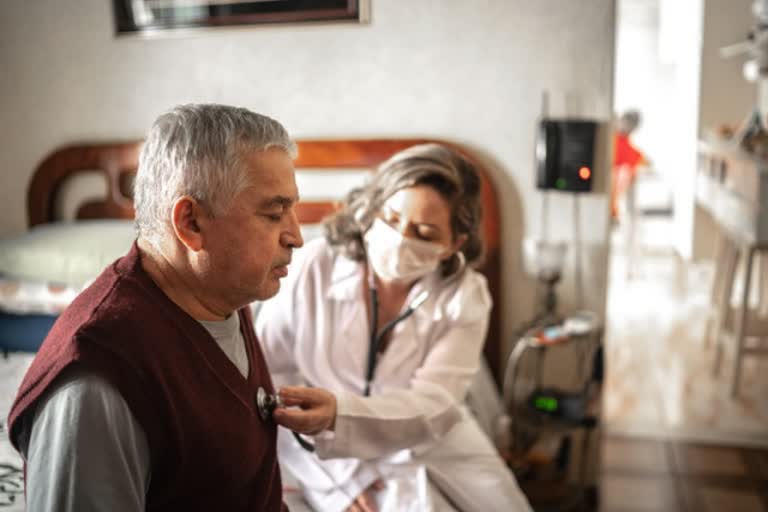Amongst the many new things that are being observed post COVID-19 recovery in people, heart related diseases is one of them. Studies have shown that people with no past heart conditions are suffering from heart attacks, stroke or heart damage, which is rather surprising. Also, experts say that those with existing medical or heart conditions may have to face more severe outcomes.
An article published by Johns Hopkins Medicine stated that early reports coming out of China and Italy, two areas where COVID-19 took hold earlier in the pandemic, show that up to 1 in 5 patients with the illness end up with heart damage. The same article was reviewed by Cardiologist Erin Michos, M.D., M.H.S., where she explained the possible ways in which a respiratory disease may be damaging the heart. She says that 'Cells in the lung and heart are both covered with protein molecules called angiotensin-converting enzyme 2, or ACE-2. The ACE-2 protein is the doorway that the new coronavirus uses to enter cells and multiply. There are multiple mechanisms for heart damage in COVID-19, and not everyone's the same. Temporary or lasting damage to heart tissue can be due to several factors:
- Lack of oxygen
As the virus causes inflammation and fluid to fill up the air sacs in the lungs, less oxygen can reach the bloodstream. The heart has to work harder to pump blood through the body, which can be dangerous in people with pre-existing heart disease. The heart can fail from overwork, or insufficient oxygen can cause cell death and tissue damage in the heart and other organs. - Myocarditis: inflammation of the heart
The coronavirus may infect and damage the heart muscle tissue directly, as is possible with other viral infections, including some strains of the flu. The heart may also become damaged and inflamed indirectly by the body’s own immune system response. - Stress cardiomyopathy
Michos says that Viral infections can cause cardiomyopathy, a heart muscle disorder that affects the heart's ability to pump blood effectively. When attacked by a virus, the body undergoes stress and releases a surge of chemicals called catecholamines that can stun the heart. 'Once the infection resolves, the stressor has ended and the heart can recover.
COVID Destroy Healthy Tissues
Adding to these possible factors, Michos explains that most serious of all is the possibility of the immune system launching an attack on the invading virus that is so severe that it destroys healthy tissues. In some people, perhaps due to a genetic difference, this normal defensive event is exaggerated, leaving them vulnerable to a cytokine storm.
In a study conducted by JAMA, MRI conducted on 100 recently recovered COVID-19 patients, it was found that 78% people had cardiac abnormalities and 60% patients had ongoing myocardial inflammation. Therefore, taking care of your heart is important, even if you have no history of cardiac issues in the past. Along with everyone, it is specifically for COVID recovered patients to follow a healthier lifestyle and dietary habits. Especially those with underlying heart conditions need to be extra precautious post recovery. If symptoms such as weakness, breathlessness or chest pain persist after recovery, do not delay seeking medical help.



